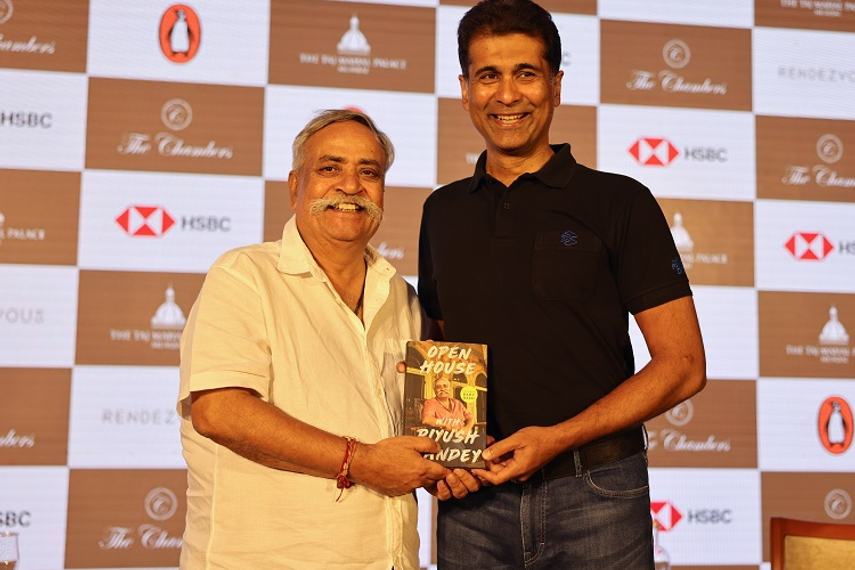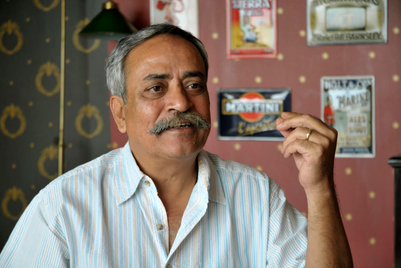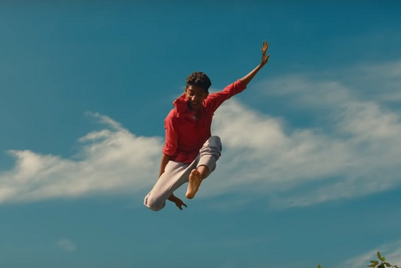Indian Hotels Company (IHCL) hosted a chat which featured Piyush Pandey, chairperson – global creative, and executive chairperson – India, Ogilvy, and Rajiv Bajaj, CEO, Bajaj Auto. The duo were in conversation with Suresh Venkat, former editor, CNBC TV18.
Client-agency partnership
Pandey has previously stated that every client gets the agency it deserves. Venkat kicked off the talk by bringing up this statement and asked the duo whether every agency gets the client it deserves.
"I assume what he meant was that advertising is the reflection of the product. As far as agencies are concerned, it’s up for him to say," said Bajaj.
Pandey added that his long-lasting partnerships with clients like Bajaj, have shown that the agency too, gets the clients it deserves.
He explained, “I have been fortunate in my life to have worked with the people I have. We have had long relationships. If a client left and went out, we didn’t deserve it.”
Big data, AI, ML
Venkat then brought up buzz words in the advertising industry like big data, AI and ML, and asked Pandey for his take on the same.
Pandey ruled that none of them could overtake the power of an idea when it comes to communication.
"Advertising is communication. Big data is something people can have and study. Research and algorithms too can be in the science labs, but you need an idea. Someone came up with the idea of algorithms etc, too, right? Data gives current behaviour, while good ideas help provide answers. Yes, we need all the buzz words you mentioned, but it’s about how we use them," he said.
Definitely male
Ogilvy had crafted the communication for Bajaj’s Pulsar and the duo explained how the ‘definitely male’ communication came about.
Pandey stated that the ‘definitely male’ thought came to him during his drive from Mumbai to Pune. It was completely different from the ideas the team had worked on, all of which were kept in the car itself and not taken to the meeting.
Stating how he first reacted to the thought, Bajaj said, "I was told Ogilvy was a process-oriented company, but in the process of coming to Pune, he dumped the processes and came up with ‘definitely male’. I was told to keep four things in mind when creating campaigns – be relevant, be differentiated, check if the difference is credible and tangible, and fourthly, if it’s communicated dramatically in the right way. Then came, the most important metric - make your competitor uncomfortable. If a competitor has SRK as a brand ambassador and says 'buy this car, that doesn’t make me uncomfortable'."
On the thought itself, Pandey shared, "He didn’t buy the campaign on those two words alone. I told him that inanimate objects have a gender in the country. For instance - bus chalti hai versus truck chalta hai. Scooter chalta hai, versus motorcycle chalti hai’. I thought the bike he had was definitely male and couldn’t be categorised as female, and so came the thought."
Venkat then asked Bajaj, how the company launched a powerful bike, in a market which was only ready for those that gave a superior mileage.
Bajaj said, “Technology was saturated in the country. Advertising for automobiles is poor too. We compete more on perception than reality. Now, if you cut back to the two-wheeler market, there were 2 types of motorcycles - two-stroke and four-stroke. We came late to the market. We had to make a perception. We figured that if there’s room in the world for a mileage motorcycle, there’s also scope for a powerful motorcycle. So, we said to ourselves - if someone made the small one, we can create the power one. We had no research on hand, but had the conviction.”
Global brands
Venkat then steered the conversation about Indian brands making it big globally and asked Bajaj whether his brand could be called a global brand.
Bajaj stated that it’s an Indian brand.
"When we set out on our international journey, 15 years ago, we said to ourselves, we didn’t want to be the biggest or the best - we wanted to be the most versatile brand. And that’s what we are. We have one for US$400 for Nigeria and one for 6,000 euros in Europe and North America. That’s showing us being versatile, and we have the global capability for sure," he said.
He went on to clarify that he believed Bajaj Auto is a B2B brand.
"The customer doesn’t say give me a Bajaj. The customer wants a Pulsar/Dominar and those are the B2C brands," he said.
On the topic of global brands, Pandey added, "If you have a product that has the potential to be global, I’m sure CEOs have the money to spend and do this."
Leaders, captains
Venkat’s next topic of discussion for the duo was about leaders.
Calling Pandey the captain of Ogilvy, he asked him what he looks for in other captains of the advertising industry.
Pandey’s message was that captains emerge and are not always appointed because of seniority.
"Advertising is a team game. There are no factories or products, it’s just about people. Captains emerge and they’re not appointed because of their seniority. The playing captain needs to demonstrate why he/she has got the role. If you don’t perform, you won’t be in the team," he added.
Venkat then asked Bajaj for his take on the common saying – ‘surround yourself with people smarter than you’, and asked whether leaders often don’t end up following this, because of their insecurities.
Quoting Warren Buffet, Bajaj responded, "Work for a company that an idiot can run, because that idiot will run it one day. My grandfather was a great entrepreneur, and my father a businessman. CEOs must realise that they are very average. Take me out of Bajaj and put me somewhere else, I won’t be as good. Luck and circumstances both play a big role."
He then went on to quote Jeff Bezos, who said that he often looked for only one quality in the people he hired – those who could solve problems.
"We have to solve problems and the solution is often different from what you think. That’s an important quality."
Venkat nudged Pandey to ask him if creative agencies can help solve a client’s problem without the latter having media budgets.
"Yes, they should if they are partners. It should give the agency as many sleepless nights as the client when there’s a problem. It’s a partnership and you must feel the pain and gain in equal measures. That’s how our relations were built," he replied.
Bajaj was then asked whether he turned to the creative agency for problem-solving.
"We don’t need so much creativity. At an organisational level, if there’s too much creativity, you turn into a Kingfisher. They didn’t have a model, they had only models. See the EV business too, udhar literally aag laga di (referring to electric scooters catching fire). For creativity, you don’t need to be creative, but you need to be reflective. I think creativity is less important than reflecting ability,” he said.
Covid response
Pandey stated that while the agency responded to the pandemic by creating several pieces of work, Covid was a problem that needed to be tackled rather than an opportunity to monetise.
"We worked with the CII independently and gave work to run on TV channels. Our work was also about vaccinations and getting people to wear a mask properly. Covid was a problem and not an opportunity to monetise. It was a pure responsibility and you had to react to this global problem," he said.
EVs and competing with start-ups
Venkat asked Bajaj whether the company is competing with EVs or start-ups that are currently burning cash and have no apparent motive of making profits.
Bajaj said, “In today’s market, Hero outsells us 5:1 when it comes to 100cc bikes. But when it comes to the export market we sell them 10:1. The results are completely different. This tells you that the cost of being wrong is better than being late. What we have to do is keep the show running, which is very viable. We have an electric business and maybe we will also burn some cash to promote them too."
Giving his view on the ‘hyper funded start-ups’ Pandey added, “Some of them look frivolous. They are blowing money because they have money. Some will end up making money. If you’re spending money with some idea behind it, it could make sense.”




.jpg&h=334&w=500&q=100&v=20250320&c=1)
.jpg&h=334&w=500&q=100&v=20250320&c=1)


.jpg&h=334&w=500&q=100&v=20250320&c=1)
.jpg&h=334&w=500&q=100&v=20250320&c=1)



.jpg&h=334&w=500&q=100&v=20250320&c=1)
.png&h=268&w=401&q=100&v=20250320&c=1)

.jpg&h=268&w=401&q=100&v=20250320&c=1)

_3.jpg&h=268&w=401&q=100&v=20250320&c=1)

.jpg&h=268&w=401&q=100&v=20250320&c=1)
.jpg&h=268&w=401&q=100&v=20250320&c=1)
